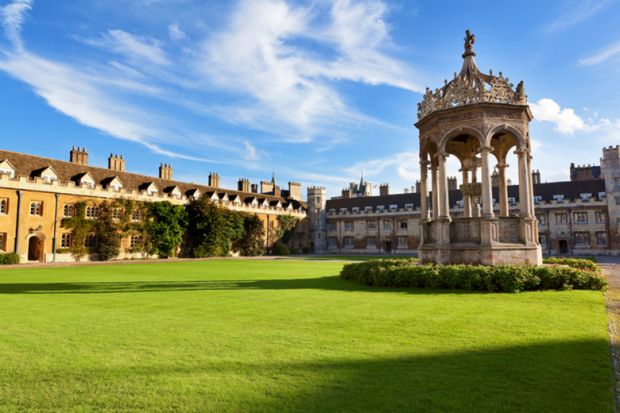Trinity College, Cambridge – one of the UK’s richest educational institutions – has confirmed that it is withdrawing from the Universities Superannuation Scheme.
The college, which has assets worth £1.3 billion, according to its latest accounts, said that it was leaving the higher education sector’s biggest pension fund because of the “remote but existential risk to the college from continued participation in USS”.
The USS is a “last employer standing scheme”, with sponsoring employers jointly liable. “Although the college is a tiny employer, in a worst-case scenario, all of its assets could be transferred to USS,” a Trinity statement said.
Academics employed by Trinity will become members of new “pensions arrangements” administered by the college, providing the same benefits as the USS, the college said.
Trinity said that fewer than 20 full-time permanent members of academic staff solely employed by the college were in the scheme, which has about 200,000 active members. The majority of the college’s teaching staff – around 60 individuals – will remain members of the scheme, since they are primarily employed by the University of Cambridge.
Trinity will make a payment to USS to meet its obligations under the scheme, estimated to be “in the region of 2 per cent of the college’s total assets”, the statement said.
Rory Landman, Trinity’s senior bursar, said that this was “not a decision taken lightly by the college council”.
“Following substantial legal and actuarial advice, and bearing in mind our responsibilities as charity trustees of Trinity, we believe leaving USS is in the best interests of the college,” he said.
